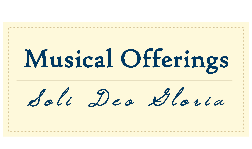Publication Date
11-21-2022
Document Type
Article
Keywords
Guido D'Arezzo, Guido of Arezzo, Music, Education, Music Education, Medieval, Middle Ages, Notation, Music Staff, Composition, Solfege, Johannes Tinctoris, John Curwen, Kodaly, John Feierabend
Abstract
Music education has been influenced by many people throughout history, but arguably none of them have done so as much as the monk, Guido D’Arezzo. His teaching methods have been embraced and developed by music educators throughout the centuries. For example, it is recorded that Guido was the first to use the five-line staff as we use it today. This was especially groundbreaking in a world of rote memorization. Today it is used globally in music education. The roots of solfege are also found in Guido’s writings; his syllables have been adapted by Zoltan Kodály. Not only that, but John Curwen’s hand signs are derivative of the so-called Guidonian Hand. Guido’s writings also provide ideas on including composition in teaching music. These ideas have been adapted by John Feierabend, a proponent of improvisation in the music classroom. Therefore, many of our modern practices can be traced back to the roots of Guido’s ingenuity.
Volume
13
Issue
2
Article Number
1
First Page
59
Last Page
71
DOI
10.15385/jmo.2022.13.2.1
Recommended Citation
Kee, Lydia C.
(2022)
"Medieval Methods: Guido D’Arezzo’s Innovative Approaches to Music Education,"
Musical Offerings: Vol. 13:
No.
2, Article 1.
DOI: 10.15385/jmo.2022.13.2.1
Available at:
https://digitalcommons.cedarville.edu/musicalofferings/vol13/iss2/1
Creative Commons License

This work is licensed under a Creative Commons Attribution-Noncommercial-No Derivative Works 4.0 License.
Disclaimer
The CedarCommons repository provides a publication platform for fully open access journals, which means that all articles are available on the Internet to all users immediately upon publication. However, the opinions and sentiments expressed by the authors of articles published in our journals do not necessarily indicate the endorsement or reflect the views of Digital Services, the Centennial Library, or Cedarville University and its employees. The authors are solely responsible for the content of their work. Please address questions to the Digital Services staff.
Copyright
© 2022 Lydia Kee. All rights reserved.
Included in
Art Education Commons, Composition Commons, Early Childhood Education Commons, Fine Arts Commons, Medieval Studies Commons, Music Education Commons, Musicology Commons, Music Pedagogy Commons, Music Performance Commons, Music Theory Commons

